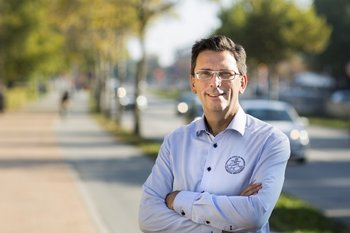The administration is focussed on the needs of the academic units
In 2017, the administration will focus on initiatives to help the academic units attract more external grants, improve career paths for early career researchers and simplify teaching and exam timetabling.
A few months ago, I wrote that the best solutions involve the academic units, and this philosophy is the foundation for the administration’s work in 2017. We must translate the experiences and needs of employees and students from different parts of the university to versatile solutions which can be applied across faculties, schools, departments and administrative units.
In a number of areas, we are working on concrete improvements to our services for researchers and students. Some important highlights from the administration’s large portfolio of tasks include:
- Timetabling of teaching and exams
- Educational IT
- Applications for external grants
- Recruitment and development of highly qualified academic staff
- Relations with business and industry
Increased digitisation of the study and teaching environment
A major administrative project in relation to studies administration is the purchase of a new university-wide system for teaching and exam timetabling. The system will be used to make sure that the allocation of classrooms and the timetabling of courses is performed smoothly and efficiently across the university.
Another important project which will be in focus in the time ahead is supporting the university’s initiatives in relation to Educational IT. The Educational IT initiative is about introducing digital tools which will provide greater flexibility and enable new forms of teaching and learning.
The context for this is the university’s digitisation strategy, which also includes ambitions to improve IT facilities for research and digital tools to help simplify the administration.
The administration must contribute to the bottom line
In relation to research, the faculties’ success in attracting more external grants is an important precondition for sustaining the university’s high level of academic excellence. Among the administration’s concrete tools for research support, particularly in connection with grants from the EU and large private foundations, is assistance in preparing grant application and training to prepare for the interviews which are increasingly part of the application process. We are going to work with the university’s researchers to improve these services.
The administration must also provide support for the faculties’ persistent efforts to attract more grants by continuing to develop and promote a joint system to monitor external research funding. The system will make it possible to monitor such parameters as the number of grant applications and their success rates, which will improve our ability to offer researchers support where it is most needed.
We are also embarking on a long-term process of cultivating philanthropical donations to the university, which represent an under-tapped source of revenue.
Recruitment and development of highly qualified academic staff
We will supplement the faculties’ efforts to attract more external funding with qualitative efforts to attract and develop qualified researchers who can help inspire funders and partners in the private and public sectors to invest in the university.
Through initiatives aimed at postdocs, we also intend to help the faculties create attractive working conditions and visible career paths for the talented early career researchers who are the university’s future. At the same time, we will help support the departments and schools in their efforts to recruit strong academic staff, for example through professional sparring on long-term personnel planning based on academic strategy and how to organise efficient recruitment processes.
The university’s talents must also be made more visible to the world around us. We have to help the faculties lay a four-lane motorway which can give business and industry direct access to the university. We and the faculties must work together to create clearly-marked points of entry which can lead to more research collaborations and more bridge-building between degree programmes and the labour market.
IT is the common denominator
Many of the administrative development projects and the ongoing process of streamlining work processes require the university to increase its IT development capacity. We must free up the necessary resources to ensure that the IT projects we initiate are implemented on time and at the agreed price.
This means that we need to weed out and clean up some of the many old systems which we are currently spending all too much energy on maintaining. For example, we currently have 12 databases which manage user rights for the university’s IT systems. Twelve systems, all of which must be maintained. The goal is to pare this down to one system. Similarly, we will reduce the existing 30 data centres to just three.
In other words: There’s no shortage of work to be done in 2017. Because we have great ambitions for the development of the administration. At the same time, we must remember that reliable daily operations are the prerequisite for development. Development without operations is like a train with out tracks: no matter how powerful the motor is, you get nowhere.
Keep up your good work!
